Tadić: EU requests should serve as incentive
EU conditions for Serbia and Macedonia should not discourage us and should be an incentive, Serbian and Macedonian Presidents Boris Tadić and Gjorge Ivanov say.
Friday, 16.12.2011.
17:02

EU conditions for Serbia and Macedonia should not discourage us and should be an incentive, Serbian and Macedonian Presidents Boris Tadic and Gjorge Ivanov say. Tadic, who started a two-day visit to Macedonia with a meeting with his Macedonian counterpart, pointed out that both Serbia and Macedonia and the entire Western Balkans had a future in the EU, which “is the safest zone for the Western Balkan citizens even though the region is facing various challenges”. Tadic: EU requests should serve as incentive “I am not discouraged by the additional conditions, even though Macedonia got the candidate status three years ago but not a date for the beginning of the talks. That should not discourage us and we should continue to implement reforms instead. The goal is to create Europe inside the state and it would be easier then to convince the EU that we are ready for the membership,” Ivanov told a joint press conference after the meeting with the Serbian president. “I am thankful to President Ivanov for this message because it needs to be heard in Serbia where some have been discouraged because Serbia did not get the (candidate) status in the first attempt,” Tadic stressed. He supported Macedonia's EU integration process and congratulated the country on its accomplishments in that respect, as well as on the solving of macroeconomic and other issues. Tadic reiterated that Serbia, when it came to Kosovo, had certain principles that it would not renounce. “I will continue convincing my colleagues in the EU that Serbia has legitimate interests in Kosovo that we will not renounce,” he underlined. The two presidents agreed that the two countries had friendly relations, and Tadic pointed out that he was very pleased that he was visiting Skopje right after a survey that showed that the Serbian people considered the Macedonians closest to them. “The next time I visit, I would like for a similar survey to be carried out in Macedonia as well, which would show that the people here think the same of Serbia,” he noted. When asked whether church disputes burdened the relations between the two countries, Tadic and Ivanov stressed that Macedonia and Serbia were secular states and that churches should be left to resolve church issues, and courts issues of the court. The Serbian president added that church issues should not be an obstacle to the two countries and their peoples’ relations. “As far as the issue between the two churches is concerned, it should not affect the two countries and the two peoples’ relations. It is of great importance to Serbia to solve the problem,” Tadic told the press conference after the meeting. He said that his visit to Macedonia had nothing to do with the return of the defrocked Macedonian Orthodox Church priest Jovan Vranishovski from Greece where he had been arrested. The two presidents also discussed a series of issues in the domain of bilateral relations, particularly the economic ones, and future projects in the area of energy and infrastructure. The topics of talks included culture and identity of the Serbian and Macedonian peoples, and the status of minorities. The Serbian president also met with Macedonian Prime Minister Nikola Gruevski and parliament Speaker Traiko Veljanoski in Skopje. Boris Tadic and Gjorge Ivanov (Tanjug)
Tadić: EU requests should serve as incentive
“I am not discouraged by the additional conditions, even though Macedonia got the candidate status three years ago but not a date for the beginning of the talks. That should not discourage us and we should continue to implement reforms instead. The goal is to create Europe inside the state and it would be easier then to convince the EU that we are ready for the membership,” Ivanov told a joint press conference after the meeting with the Serbian president.“I am thankful to President Ivanov for this message because it needs to be heard in Serbia where some have been discouraged because Serbia did not get the (candidate) status in the first attempt,” Tadić stressed.
He supported Macedonia's EU integration process and congratulated the country on its accomplishments in that respect, as well as on the solving of macroeconomic and other issues.
Tadić reiterated that Serbia, when it came to Kosovo, had certain principles that it would not renounce.
“I will continue convincing my colleagues in the EU that Serbia has legitimate interests in Kosovo that we will not renounce,” he underlined.
The two presidents agreed that the two countries had friendly relations, and Tadić pointed out that he was very pleased that he was visiting Skopje right after a survey that showed that the Serbian people considered the Macedonians closest to them.
“The next time I visit, I would like for a similar survey to be carried out in Macedonia as well, which would show that the people here think the same of Serbia,” he noted.
When asked whether church disputes burdened the relations between the two countries, Tadić and Ivanov stressed that Macedonia and Serbia were secular states and that churches should be left to resolve church issues, and courts issues of the court. The Serbian president added that church issues should not be an obstacle to the two countries and their peoples’ relations.
“As far as the issue between the two churches is concerned, it should not affect the two countries and the two peoples’ relations. It is of great importance to Serbia to solve the problem,” Tadić told the press conference after the meeting.
He said that his visit to Macedonia had nothing to do with the return of the defrocked Macedonian Orthodox Church priest Jovan Vranishovski from Greece where he had been arrested.
The two presidents also discussed a series of issues in the domain of bilateral relations, particularly the economic ones, and future projects in the area of energy and infrastructure.
The topics of talks included culture and identity of the Serbian and Macedonian peoples, and the status of minorities.
The Serbian president also met with Macedonian Prime Minister Nikola Gruevski and parliament Speaker Traiko Veljanoski in Skopje.










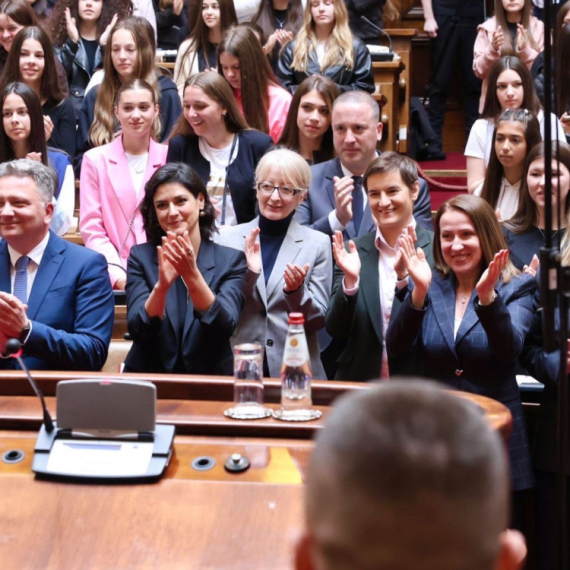

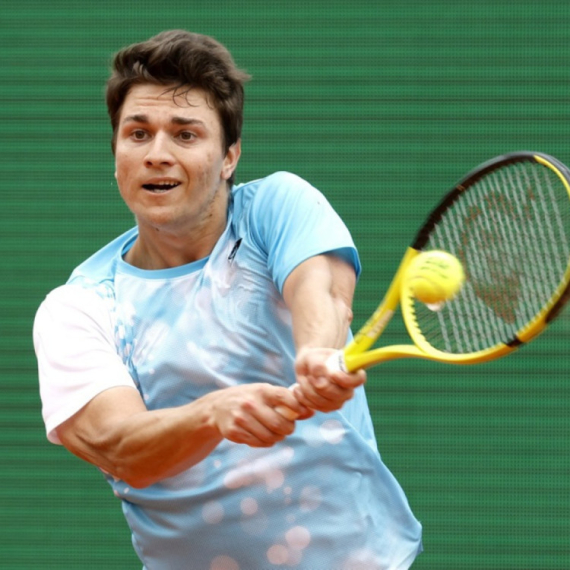
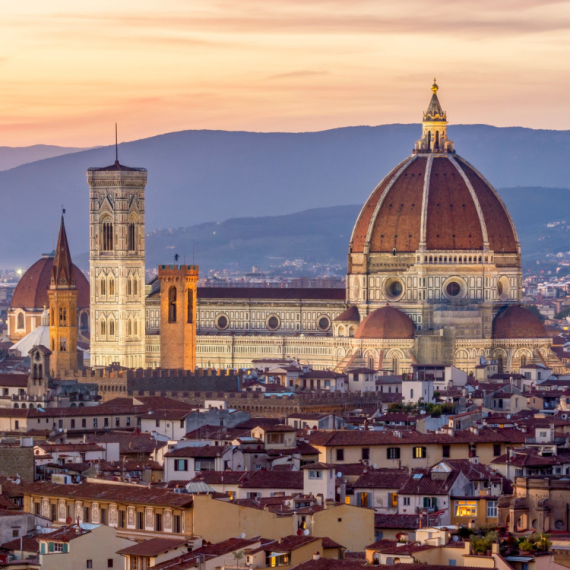

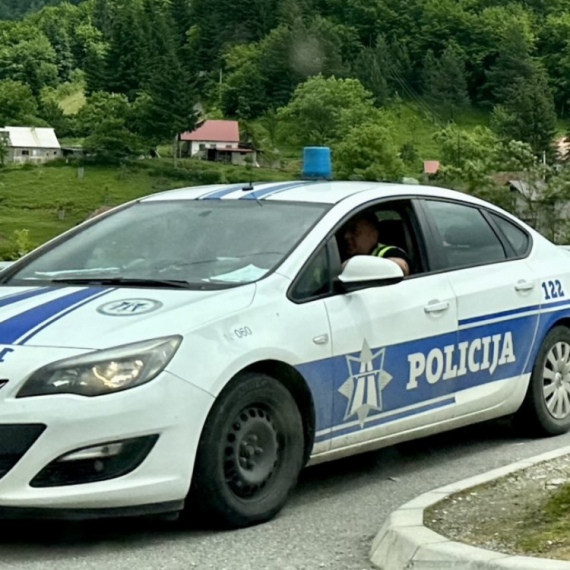
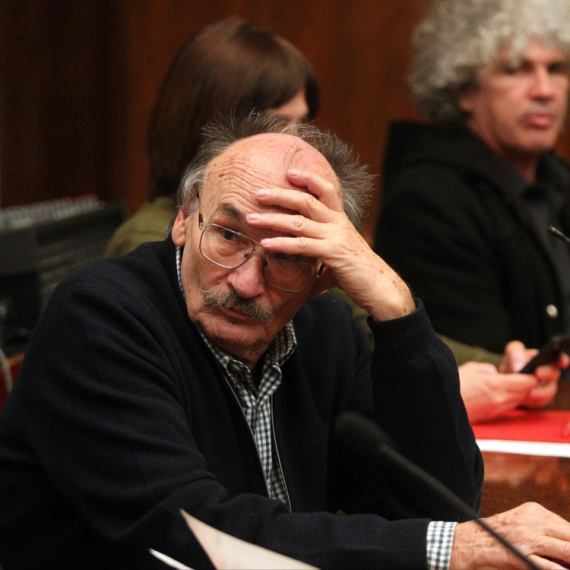
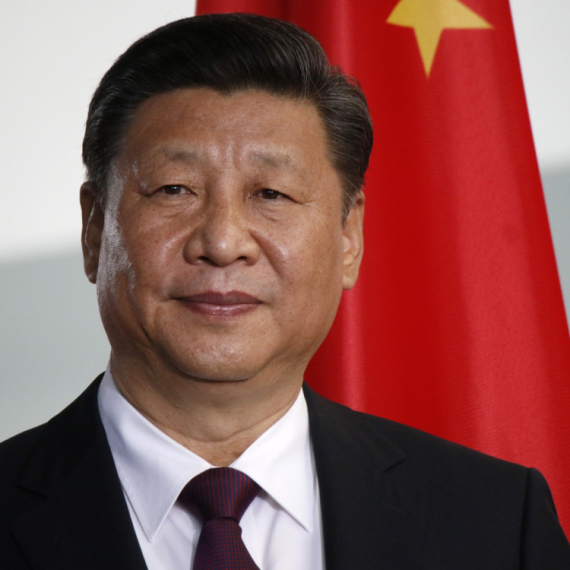


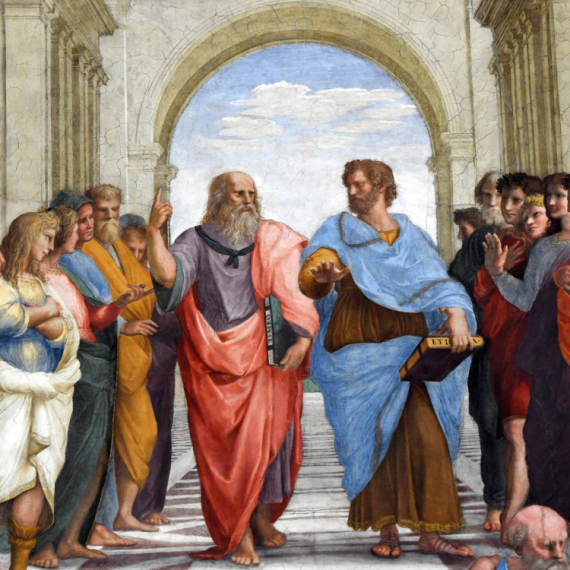

















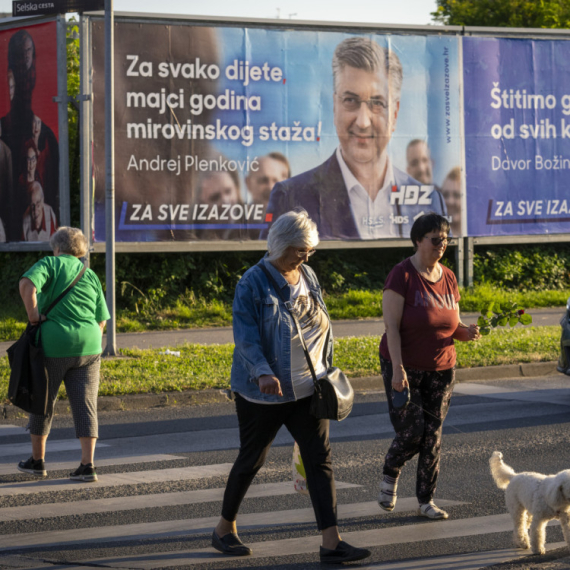




















Komentari 8
Pogledaj komentare